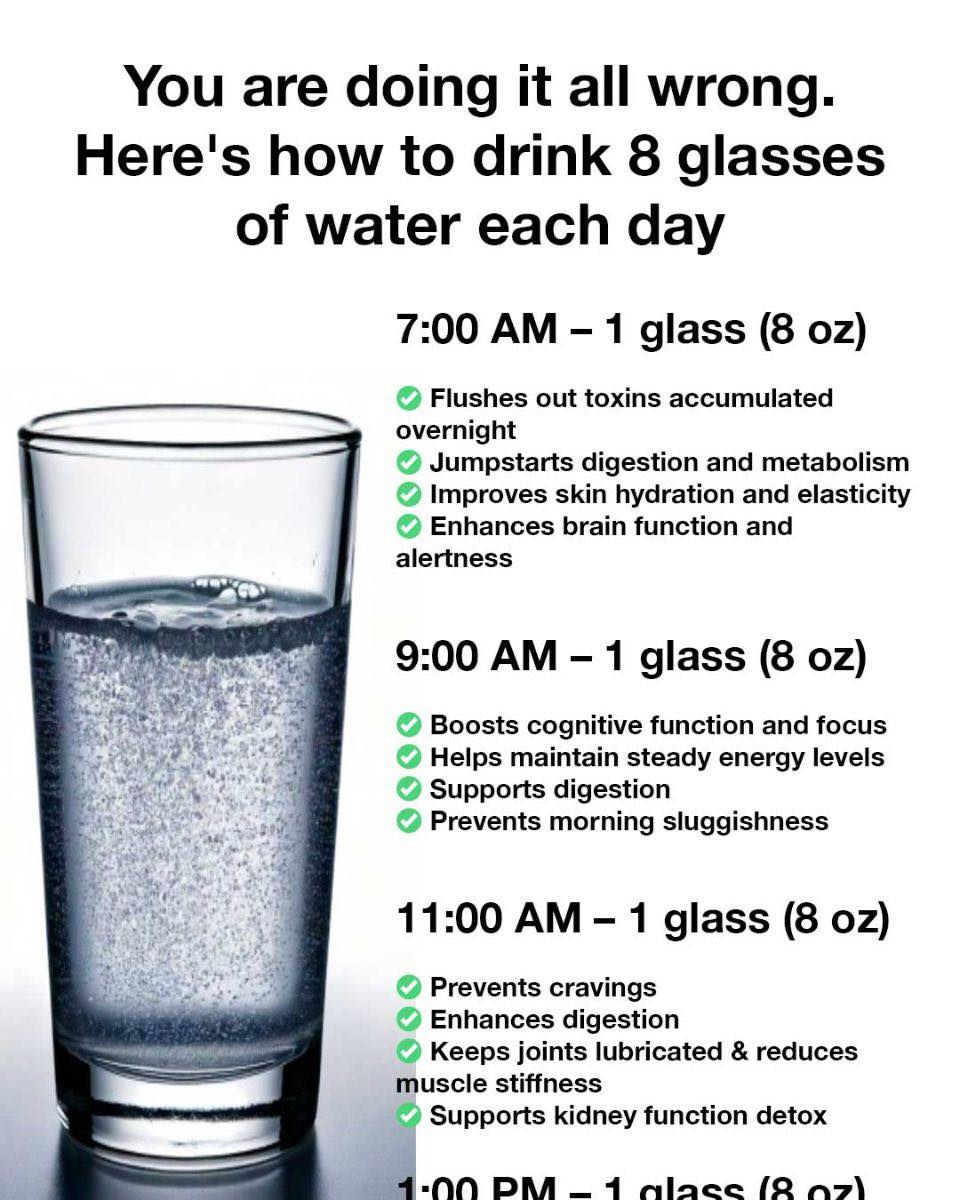ADVERTISEMENT
5. **Improves Cognitive Function**: Dehydration can impair cognitive function, making it harder to focus, think clearly, and retain information. Drinking enough water can improve concentration, memory, and overall mental performance.
6. **Boosts Energy Levels**: When you’re dehydrated, you may feel sluggish or fatigued. Drinking sufficient water keeps your energy levels up and supports the optimal functioning of your muscles, heart, and brain.
7. **Promotes Kidney Health**: Drinking enough water helps your kidneys filter waste more efficiently, reducing the risk of kidney stones and urinary tract infections.
Given the multitude of benefits that come from staying hydrated, it’s no surprise that the commonly recommended guideline is to drink eight 8-ounce glasses of water per day, also known as the “8×8 rule.” However, while this guideline is a good starting point, the exact amount of water you need can vary depending on your age, activity level, and environment.
### Why the 8×8 Rule is Often Misunderstood
The 8×8 rule, which recommends drinking 8 glasses of water per day, is simple and easy to remember. But in reality, this might not be the right amount of water for everyone. It is important to understand that the amount of water you need each day can depend on various factors such as:
– **Activity Level**: If you are physically active, you may need more water to replace the fluids lost through sweat and exercise. Intense workouts or outdoor activities can cause significant dehydration, requiring additional hydration.
– **Climate and Weather**: If you live in a hot and humid environment, or if you’re exposed to high altitudes, your body will require more water to stay hydrated. You may lose more fluids through sweat in these conditions, which means you’ll need to drink more to stay balanced.
– **Diet**: Foods also contribute to your hydration. Many fruits and vegetables have high water content, such as cucumbers, watermelon, and oranges. If you consume a lot of water-rich foods, you may not need to drink as much water. Additionally, foods high in salt, sugar, or caffeine may increase your need for water as they can contribute to dehydration.
– **Health Conditions**: If you have certain medical conditions, such as kidney disease, diabetes, or heart conditions, your hydration needs may differ. Always consult a healthcare professional if you are unsure about the amount of water you should be drinking.
### How Much Water Do You Really Need?
Rather than blindly following the 8×8 rule, a more accurate method of determining your water intake is by paying attention to your body’s signals and considering your lifestyle. Most experts recommend a general range of water intake based on body weight. Here’s a simple guideline:
– For women: 2.7 liters (91 ounces) of total water intake per day, which includes both beverages and food sources.
– For men: 3.7 liters (125 ounces) of total water intake per day.
This is the total amount of water your body needs, and it includes all fluids consumed throughout the day, not just water. For example, tea, coffee, milk, and even foods like soup and fruit contribute to your hydration.
Additionally, a common recommendation is to drink half of your body weight in ounces of water per day. For example, if you weigh 150 pounds, aim for 75 ounces of water daily.
However, it’s important to remember that these are general guidelines, and individual needs can vary greatly.
For Complete Cooking STEPS Please Head On Over To Next Page Or Open button (>) and don’t forget to SHARE with your Facebook friends
